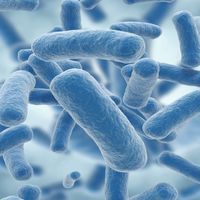Login
SubscribePKU

Heel Prick, 1957
Ashley Yeager | Jul 15, 2019 | 3 min read
Robert Guthrie’s blood test for the metabolic disorder phenylketonuria launched a worldwide movement to screen every baby for the disease soon after birth.

CRISPR Editing Heads Off Disease in Mouse Livers
Shawna Williams | Oct 9, 2018 | 2 min read
Separate proof-of-concept studies report success against two inherited diseases.

Synthetic Bacteria Help Treat Phenylketonuria in Mice
Diana Kwon | Aug 17, 2018 | 2 min read
The genetically engineered probiotic, already in clinical trials, may ease patients’ strict dietary regimes.

New Treatments for Phenylketonuria Aim to Loosen Reins on Strict Diet
Diana Kwon | May 29, 2018 | 5 min read
Biotechs have developed enzyme replacements and genetically modified probiotics to treat patients with the rare metabolic disorder.
